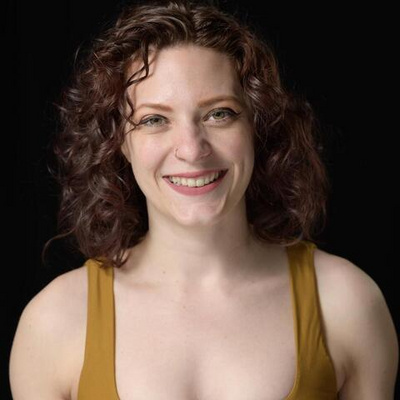The Digital Future of Casting With JamarGig’s Rick Tjia

In the ever-changing world of live entertainment, both talents and talent scouts have more technological tools than ever before at their disposal to find what they need… if only they know how to use them! In this interview with our own Melissa Mellon, Rick Tjia, co-founder of the game-changing casting platform (and CircusTalk partner!) JamarGig, shares his best insider tips on how casting is evolving— and how you can keep up with the tide of change.
JamarGig co-founder and VP of Casting Rick Tjia is a dancer, choreographer, composer, and actor who’s made big ripples in the world of recruiting talent. After an extensive career that includes performances with Ballet Austin, Boston Ballet, and Delta Festival Ballet, as well as three years dancing for film and TV in Los Angeles, Rick joined La La La Human Steps in Montreal in 1993, with whom he danced and toured the world for eight years before becoming a Talent Scout specializing in dance for Cirque du Soleil.
His 16+ years with Cirque saw Rick using his on-the-field expertise to contribute innovative new strategies to their Casting Department. Soon his work branched out to include casting for other major entities, among them Dragone, Daniel Ezralow, RWS Entertainment Group,and Canada’s Got Talent.
He later joined the creative team of Cirque du Soleil’s Big Top show Volta as an acrobatic choreographer. In 2018, he started up the online choreography market Choreography Online, through which he continues his casting work, as well as teaching a Diploma in Choreography Program online and managing the platform’s International Online Dance Competition.
Out of all of Rick’s many achievements, though, the one we want to focus on today is his role as one of the founders of JamarGig, a game-changing new online casting and audition management system.
I was excited to sit down with Rick and ask him about the casting process. Rick’s insight not only shines a light on what we can do differently to make casting more efficient and equitable but also makes wonderful advice for artists who sometimes feel lost in the process because they don’t know the other side’s perspective.
Melissa Mellon (MM): What do you enjoy most about the casting process?
Rick Tija (RT): I like the challenge of finding exceptional talent (though not all castings require exceptional talent). I like seeing the submissions rumble in; there’s something satisfying about knowing that whatever strategy you’ve taken to stimulate interest is working. I like when I find someone with particularly interesting talent, or finding that rare bird that you know could turn into something extraordinary if placed in the right role and directed by the right person.
Then, I really like the moment when I can announce to someone that they got the job. The feeling that I’ve been instrumental in shaping the next step in someone’s career path.
MM: Is there a part of the casting process that you don’t enjoy?
RT: Although I enjoy going through candidates’ videos, I hate doing it with tools that are tedious and unnecessarily time-consuming. I’m a person who is both patient and impatient: I’m patient with people and processes that are open and who strive to improve, move forward, become more efficient and effective—even if they perhaps are not right now. I hate it when the tools available waste time when there’s no reason for it—the most frustrating reason being when team members just don’t want to try another way, or don’t feel like learning a new tool. For me, that’s not a valid reason. Information and skills are a great strength; I have never understood why anyone would consciously opt to remain in the dark and as unskilled as possible. It makes no sense to me.
So I hate struggling with both inadequate tools and inefficient processes when the justification for doing so is “because that’s just the way it’s done.” No way—just because something “is,” doesn’t mean that that’s the best way to do it. Or that it’s even a good way to begin with.
Or when the justification is “I don’t have the time to learn a new thing.” If you don’t have the time to learn something that is going to save you loads of time from here on out, then “I don’t have the time” is not the real reason for the resistance.
Showcase your talent!
Complete your profile page and add your act or show to the pool of performers being considered for hire via our talent database.
Signing up and creating your profile is FREE!
.
MM: Do you see any potential ways to make this aspect less of a pain point?
RT: We live in a world where technology has given each of us the potential to do much, much more in less time and with less effort. The advent of the internet, followed by social media, did for communications what the gun did for brute fighting: it became the “Great Equalizer.” Suddenly the power or control of great things was no longer only accessible to people who were bigger and physically stronger. Communication to large audiences was suddenly no longer only accessible to giant entities with huge budgets.
Cloud technology has done the same thing for other aspects of many industries. Technology in my life has certainly enabled me to be ten times as productive as I was before, and technology most definitely makes the job of casting much easier and much faster.
But just as the saying goes “You can lead a horse to water but you can’t make him drink,” you can’t force people to adopt technology to make their lives easier, more productive, and less stressful if they don’t want to change the status quo.
But as younger people enter into the industry,some of them will adopt technologies that will give them an edge over people and companies who won’t. As I said, technology is a Great Equalizer—if a small player leverages the right tools to their advantage, they have the potential to literally displace companies who have been around for decades, if those companies are resistant to change. We’ve seen it happen to Kodak, to A & M Records, to other iconic brands. The casting industry is certainly not immune.
MM: What is something that you wish artists knew about the casting process, and what can artists do to facilitate a casting director’s work?
RT: Artists need to get into the habit of seeing things from the other side. If you were the casting director, what would you want to happen, and how? Would you want to receive 500 submissions in a day, with 10 videos in each submission? Or would you be able to make a first decision with one? If so, how would you feel about sifting through 10 videos per candidate? What would you be looking for in a performer? Chances are, the casting director will be looking for the same thing.
There is some basic logic that can be applied to give performing artists basic insight as to what a hirer would be looking for and in what format. Each casting director is going to have his or her reasons for requesting that submissions be filmed in a certain way or submitted in a certain way. So the best thing that an artist can do to facilitate the casting process is to read the submission instructions. The second thing they can do to facilitate the casting process is to follow them.
Looking for jobs, auditions, residency and grant opportunities?
CircusTalk PRO has got you covered!
Click here to access the CircusTalk Job Board!
.
MM: How do you see the casting process evolving over the next few years?
RT: There are definitely going to be more and more casting processes that start online. They have to. Live auditions are very expensive, and that’s if you don’t have to travel. If you DO have to travel, the cost can be exorbitant. So if you can do the first weed-out on video, it will save a lot of headache and expenditure for everyone involved, casting directors and performing artists. Then when a process gets to the live audition part, they will have whittled the audition list down and perhaps save a day or two of studio rental—which in some cities can cost upwards of $2000 USD per day.
Online processes also give casting directors a much wider choice of artists, because you’re not restricted to artists in only one city, and you’re not restricted to artists who happen to be available on the day of your first weed-out audition. You wouldn’t want to miss out on the perfect performer for a role who is interested and available for your project simply because they were not available on your first audition day.
But then there’s also the fact that with every new casting call, you will have lots of the same people apply who have applied for your other casting calls in the past. If— instead of throwing away all the information about talented performers that you did not end up keeping for one casting call—you kept that information in a quickly findable format, then after a while, there would be a lot of casting calls that you would be able to fill without even having to go public with it. That’s a huge advantage for both the casting director and the performer, and much, much faster.
LATEST FROM THE JOB BOARD
Production Stage Manager – BOOP! The Musical National Tour
.
 Want to stay up-to-date with CircusTalk and JamarGig? Keep up with our ever-expanding partnership by following each of us on our news sites and social media channels! Learn more.
Want to stay up-to-date with CircusTalk and JamarGig? Keep up with our ever-expanding partnership by following each of us on our news sites and social media channels! Learn more.
.
Photographs shared by Rick Tjia with credit to photographer Michael Slobodian.
Editor's Note: At StageLync, an international platform for the performing arts, we celebrate the diversity of our writers' backgrounds. We recognize and support their choice to use either American or British English in their articles, respecting their individual preferences and origins. This policy allows us to embrace a wide range of linguistic expressions, enriching our content and reflecting the global nature of our community.
🎧 Join us on the StageLync Podcast for inspiring stories from the world of performing arts! Tune in to hear from the creative minds who bring magic to life, both onstage and behind the scenes. 🎙️ 👉 Listen now!

